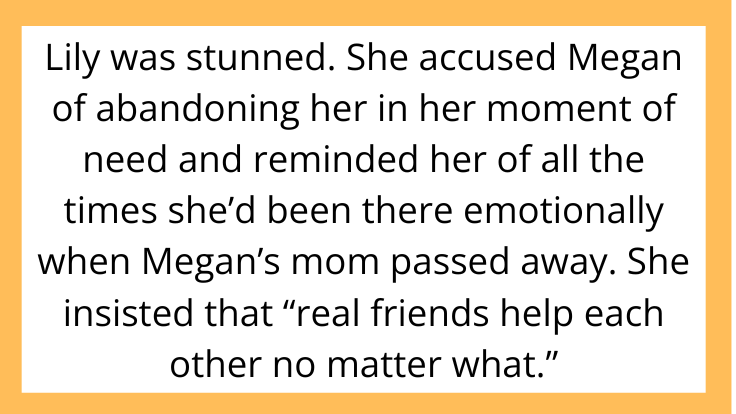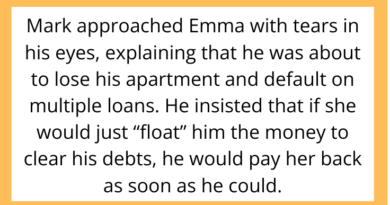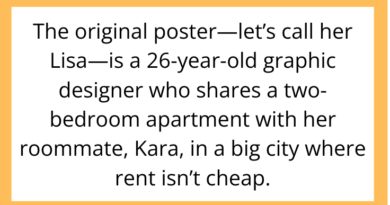AITAH for Refusing to Help My Best Friend Financially After Years of Support?
When friendships span decades, it can feel like you owe each other everything—and nothing—all at once. Today’s AITAH story dives into the complicated dynamic between loyalty and personal limits. A longtime friend says “enough,” but was it fair—or a betrayal?
Here’s what happened.
The Backstory: Years of Lending a Hand

The original poster—let’s call her Megan—shared her dilemma on r/AITAH. She and her best friend, Lily, have been close since high school. Over the years, Megan has lent Lily money on several occasions: to pay rent, cover car repairs, and buy groceries when times were tough.
Megan never minded helping out. Lily always promised to pay her back, and sometimes she did—sometimes she didn’t. Megan viewed it as part of their deep bond and the understanding that “one day it could be me who needs help.”
But this time felt different.
The Breaking Point: Another Loan Request
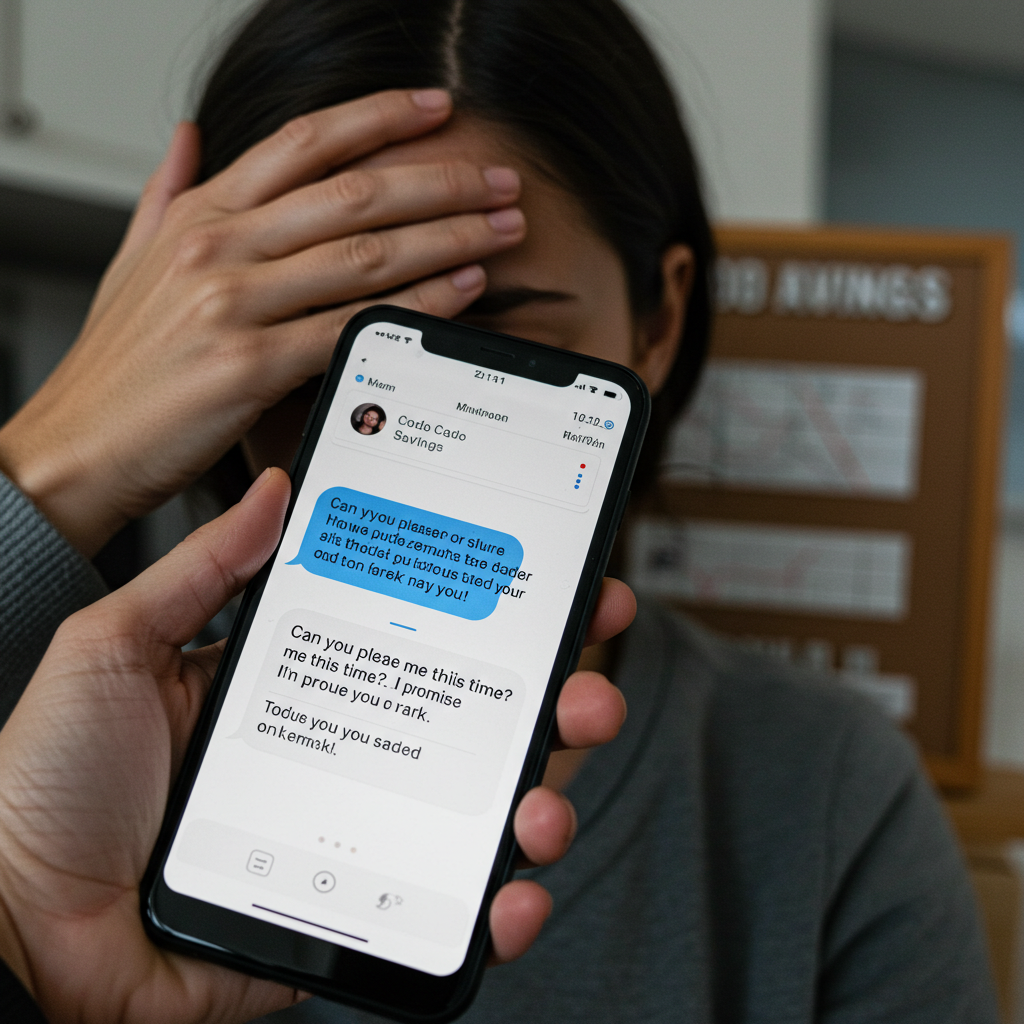
Recently, Lily approached Megan again. She had fallen behind on bills after quitting her job due to stress. She asked for a loan of $2,000 to cover her rent and utilities for the next two months.
Megan took a hard look at her finances. She could technically afford to help, but she’d been saving aggressively for her own goals: building an emergency fund and planning a down payment on a condo. She also realized she’d already given Lily over $5,000 in the last five years—most of which hadn’t been repaid.
With a heavy heart, Megan told Lily she couldn’t do it this time.
Lily was stunned. She accused Megan of abandoning her in her moment of need and reminded her of all the times she’d been there emotionally when Megan’s mom passed away. She insisted that “real friends help each other no matter what.”
Megan felt guilty but also relieved she’d finally said no.
The Internet Decides: Is Megan the Villain?
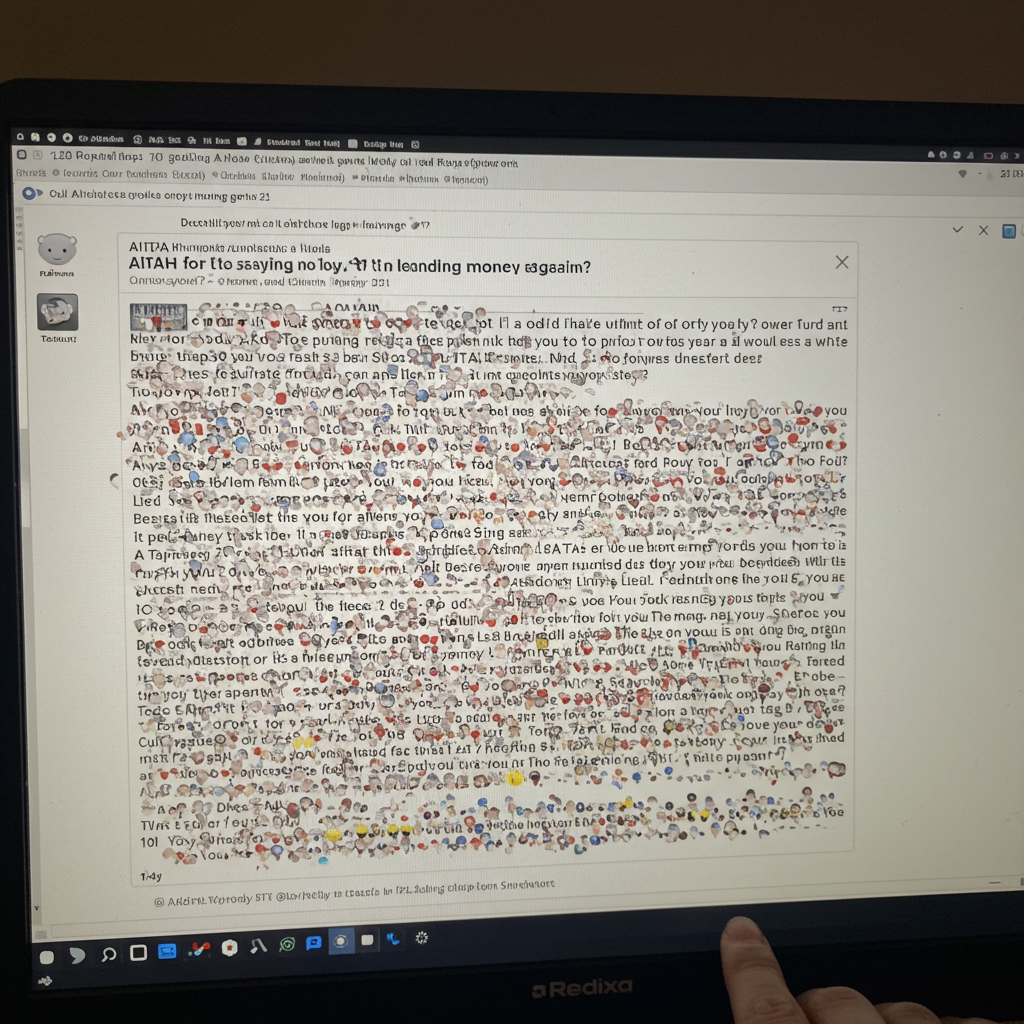
Reddit’s AITAH community wasted no time offering their verdict, and most commenters agreed:
Megan was not the villain.
Here’s why.
Lending vs. Enabling: When Helping Stops Being Helpful
One of the most upvoted comments captured the situation perfectly:
“You’re not a bank. You’ve already been more generous than most people would be. You’re not obligated to keep funding someone who isn’t making sustainable choices.”
Many Redditors pointed out that continuing to give money without clear repayment creates a cycle of dependency. While it’s admirable to help friends through hard times, it’s not sustainable when the pattern repeats over and over.
Emotional Debt Isn’t Financial Debt
Several commenters also addressed Lily’s guilt-tripping about past emotional support. Yes, Lily was there for Megan during her grief—but that doesn’t mean Megan owes her unlimited financial help forever.
Friendship means caring and being there when you can—but it doesn’t mean signing up for lifelong financial responsibility.
Why Some People Sympathized with Lily
While most supported Megan’s choice, a few voices empathized with Lily’s desperation. Quitting a job for mental health reasons can be a life-or-death decision, and finding yourself with nowhere to turn is terrifying.
These commenters encouraged Megan to consider a smaller gesture—like offering groceries or helping Lily find local assistance programs—rather than cutting her off completely.
Still, even the sympathetic responses acknowledged that Megan was not obligated to give money she wasn’t comfortable parting with.
Setting Boundaries Without Ending the Friendship

If you’ve ever lent money to a friend or relative, you know how hard it can be to balance compassion with self-respect. In situations like Megan’s, the following steps can help:
-
Be clear and kind: Explain that you’ve reached your limit financially.
-
Offer alternatives: Share resources or suggestions if you can’t give money.
-
Stand firm: Once you’ve decided, don’t let guilt change your mind.
-
Separate emotions from decisions: Loving someone doesn’t mean funding them indefinitely.
It’s possible to care about someone without agreeing to every request.
The Bigger Picture: Normalizing Financial Boundaries

One reason this AITAH story resonates is because many people are afraid to say “no” to those they love. We don’t want to look selfish, ungrateful, or cold. But the truth is, healthy relationships include limits.
Megan’s experience shows that drawing a line doesn’t make you a bad friend. It makes you an honest one.
